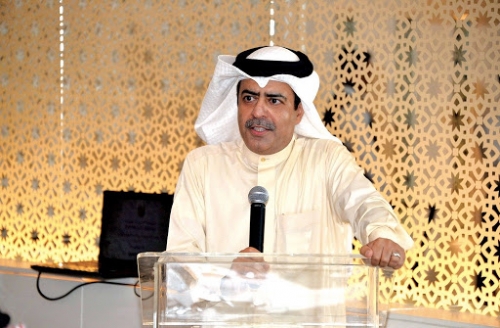‘Unity’ Bahrain’s most powerful weapon against COVID-19: LMRA Chief
TDT | Manama
Bahrain’s “most powerful weapon against the virus” is the unity of the people here, said LMRA Chief. In an article published by Arab News yesterday, Ausamah Abdulla Al Absi called this as one of the “most important lesson” taught by the COVID-19 pandemic. “When people are united to respect social distancing and protect the vulnerable”, we realise that it “our most powerful weapon against the virus.”
He also reminded that to prevent the spread of COVID-19 “the whole community must come together” as a united force. Thanks to the efforts of HRH Crown Prince Salman bin Hamad Al-Khalifa, the Chief Executive Officer of the Labour Market Regulatory Authority said, all of Bahrain is responding to the outbreak as a team.
“We are all on Team Bahrain.” The article which gives a comprehensive outlook on the measures adopted by Bahrain to combat the COVID pays respect to expatriate workers for their tremendous role in nation-building. Bahrain, he said, is committed to honouring expatriate workers and has rolled out several measures to ensure their safety amid the pandemic.
Ensuring proper space to practise social distancing at labour accommodation is one amongst them, Alabsi writes. He points out that the LMRA has directed employers to provide an additional 10 per cent space for migrant workers in accommodations. Free treatments, free meals, which now exceeds 250,000, temperature testing at worksites, field visits, multilingual awareness campaigns, he said, are ongoing.
Bahrain, Al Absi said, has circulated 900,000 multilingual pamphlets among foreign workers to ensure their safety. Contact tracing is yet another facility that is currently supporting the efforts of Ministry of Interior and Ministry of Health in their battle, he wrote. The article which speaks about the need to respond to economic impacts in a “flexible and responsible” manner also outlines Bahrain efforts in this regard.
Stimulus packages, the threemonth moratorium on fee renewals and work permits for private sector establishments are some amongst them. Bahrain, he points out, also extending the measures to further three months, providing 45,000 workers with new opportunities.
The nine-month amnesty introduced for migrant workers, he said, will allow workers to regularise their status or return home without legal consequence. He also assured that the authority will overlook all “previous work and residency violations” and issue new work permits without penalty.
He said: “ Migrants are also free to leave the Kingdom without any obstacles affecting their departure or desire to return for work in the future.” He also expressed his pride in the accolades showered by international organisations on the LMRA’s work guaranteeing the rights of the migrant workers and in combating human trafficking.
“The action we have taken to protect expatriates during the COVID-19 pandemic shows that this praise is not misplaced,” he wrote. While pledging not to rest on the laurels, he expressed confidence in the ability of “Team Bahrain” to prevail against COVID-19.
Related Posts

